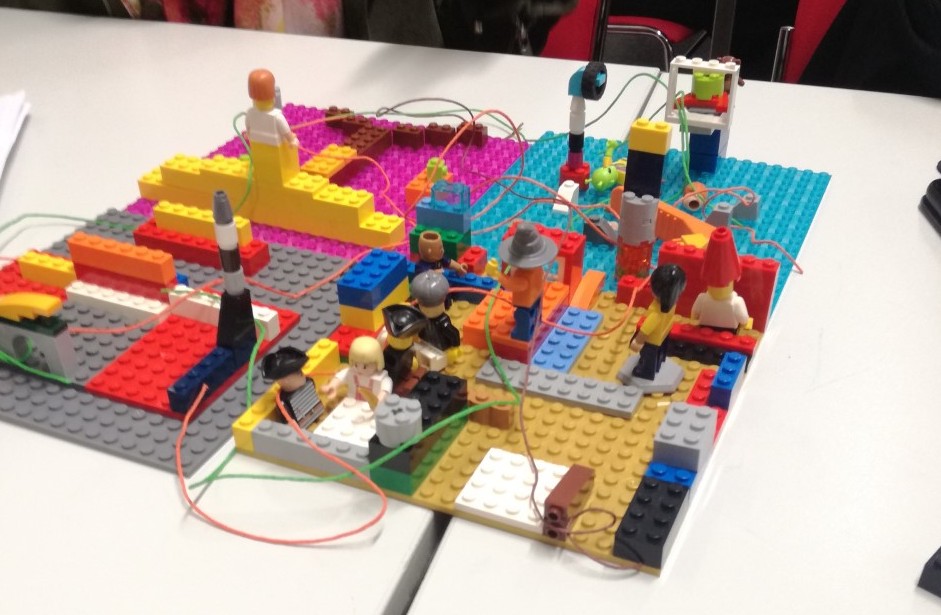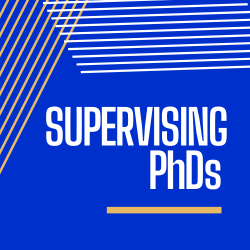This is a guest post by Dr Jo Collins and Dr Nicole Brown. Jo is a Researcher Developer at the Graduate and Researcher College of the University of Kent (@PGDevAdvisor) and an EMCC accredited coach and member of the Association of Coaching. Nicole is a Lecturer in Education at UCL Institute of Education (@ncjbrown), Director of Social Research & Practice and Education Ltd, and a UKCGE Recognised Research Supervisor.

In her recent blog post about ‘Dealing with atypical students’, Nicole highlighted the importance of a sense of belonging amongst doctoral students. In this post, we present some of the outcomes of our joint work around building a sense of belonging amongst doctoral students.
In her role as tutor and coach within the Graduate and Researcher College at the University of Kent, Jo has long been confronted with students’ sense that the PhD fostered a specific kind of isolation, as a lone project. Most postgraduate students did not form a cohesive cohort like undergraduates, who studied together and learnt the same curriculum (see UKCGE for how this is exacerbated in COVID-19). Additionally, joint activities around consolidating community were often seen as too time-costly and so PhD researchers wouldn’t attend. And yet, the issue of isolation and lack of belonging was repeatedly mentioned in feedback forms and formal and informal conversations, whilst concurrently emerging in key sector research (Metcalfe et al, 2018).
We decided to collaborate on a research project to specifically explore the doctoral journey, and to develop and foster a sense of belonging amongst doctoral researchers. Our research has now been published as ‘Using LEGO® to understand emotion work in doctoral education’ and ‘Where’s the validation? Role of emotion work and validation for doctoral students’.
To summarise our work: Nicole brought her LEGO® and we played. Initially, every doctoral researcher built their own model of their PhD journey. We then talked about the models and as similar elements were identified we tied strings from one model to the next. The end result was one messy room, but also a deeply important realisation: despite the very individual experiences of highly specialised PhD researchers, there were many similarities and connections.
We understand that not every supervisory team will have LEGO®, nor will they have the time or confidence to play. What then can be done by the supervisory team, or department, to support that development of a sense of belonging?
Develop taught elements
As mentioned above, undergraduate or postgraduate taught students find it easier to build a sense of community and belonging because they come together in cohorts. In professional doctorate studies, often, there is also a taught element, which enables students to exchange ideas, views and experiences. One recommendation therefore is to develop obligatory taught elements within the doctoral training. That could be around specific procedures and policies for carrying out research or for developing teaching skills, or it could be around offering opportunities to practise conference presentations. We appreciate that making sessions obligatory is not always a popular choice. Yet it is a model that is already embedded within some doctoral training partnerships (e.g. White Rose). From our own research, we know that doctoral students often do not realise what they need when they need it. Many doctoral students state how in hindsight a particular session would have been good, and they didn’t attend at the time because they didn’t think it was that important.
Encourage attendance in skills development courses
We’ve all met supervisors and principal investigators who have dismissed skills development as a ‘waste of time’. Yet, self-knowledge, not just research knowledge, is vital to professional success, particularly when around 80% of doctoral and postdoctoral researchers will leave academia. These realities are still somewhat hidden in academia (Denicolo et al, 2018, 84). Another key reason for workshop attendance is to connect with others, from different disciplines, but with similar challenges. Workshops bring people together to socialise and empathise with each other in ways they may not experience with their immediate peers (for one respondent in our sample, this kind of a community was more welcoming and less intimidating than the one in their school).
Opportunities for reflection and collaborative learning
Whilst skills development may be dismissed from some quarters as not offering in-depth knowledge on a par with the crafting of original research, it offers instead a space for building shared understanding and peer knowledge hat helps to navigate the building of a professional academic identity in a time of transience. Reflective learning, we argue is a form of affective practice, which, in workshops, draws people into collective meaning making. For supervisors, reflections can be a powerful tool for surfacing students’ learning, and their narratives of the uniqueness and contribution of the PhD (e.g. Denicolo et al, 2018).
Emphasise the difference between ‘being alone’ and ‘being lonely’
Our research showed that PhD students perceive themselves to be walking a ‘lone path’ with their niche work, and this fostered their sense of isolation. This corroborated earlier research showing that PhD communities can be a source of stress (Stubb et al., 2011); and that if students felt excluded, they were more likely to disengage from the PhD (Vekkaila et al, 2013). So the kind of relationship a PhD student has with their community is crucial, and a supervisor can play a key role in helping embed a student in a community of peers. Thus, whilst working in a specialised field means working alone, this is not synonymous with being lonely. Researchers can be connected and encouraged to build peer groups through formal and informal networks (MS Teams and WhatsApp are among some of the platforms available for this).
Develop peer mentoring schemes
Supervisors are well placed to bring PhD communities together – potentially connecting new and experienced PhD researchers, within their own groups, or within schools more broadly. With COVID-19, PhD students are finding it much harder to build peer relationships. Mentoring offers the opportunity to meaningfully connect PhD researchers to each other, or to postdoc mentors (see Kay Guccione’s resources). It also offers a route to what doctoral researchers told us they wanted to achieve: validation (see our paper: Collins and Brown, 2020). For our participants it was important to know that they had credibility, they were making progress, and they were heard. Mentoring offers not only belonging through social connection, it also vitally, offers PhD students an opportunity to feel validated as doctoral candidates.
We hope these ideas are useful for supervisors looking to increase a sense of community, to reduce isolation, and so to promote good mental health. Your thoughts and discussion in the comments below, are welcomed.


One Reply to “”